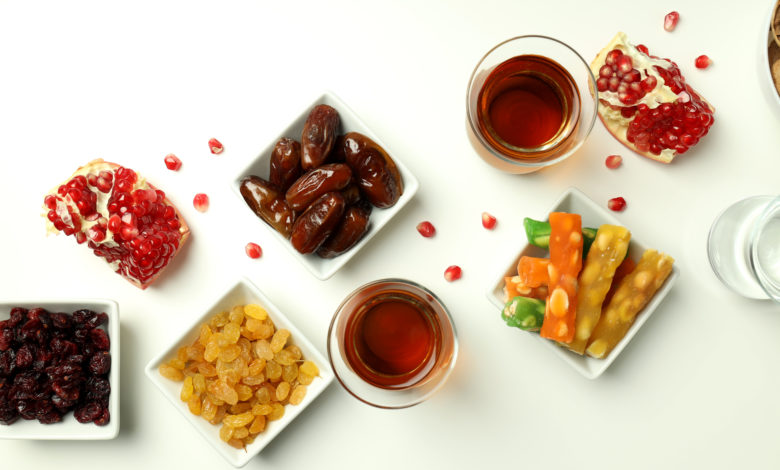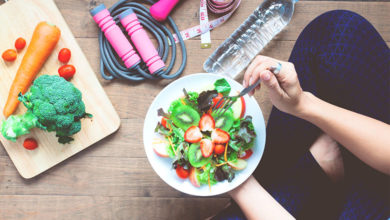Ramadan Diet: Do’s and Don’ts

The holy month of Ramadan is here. Ramadan is the month of restraint and modesty. It is challenging for devout Muslims to keep their bodies fresh after fasting every day for about 15 hours.
Many people feel weak while fasting, and many choose the unplanned diet for Iftar and Sehri during Ramadan. Proper fasting requires proper food selection, physical and mental well-being, and strong willpower.
Let’s look at some of the ways or tips that will help you fast for a long time this summer and details about the right way to use essentials in Ramadan.
Proper Diet Plan for Ramadan
1. Sehri:
Many people think that overeating on Sehri will keep them full all day long. That’s why they tend to eat more at this time. However, this is a bad idea. Try to have your usual meal at Sehri and try to finish the meal about 20 minutes earlier.
There can be a moderate amount of rice, vegetables, pulses, fish, or meat. You can have yogurt or milk on the last leaf, which will give you energy throughout the day. Basically, at this time, you should eat something that will help you with day-long fasting. However, you should not eat anything extra, as it increases the chances of fat accumulation in the body.
2. Iftar:
Preparations for Iftar usually start a while ago, therefore the feeling of fatigue gets lessened by this time. Since this is the first meal of the day, your Iftar must contain healthy food. Because eating something with an empty stomach can cause acidity.
Iftar usually requires a lot of water, so keep some fruits during this time to quench the thirst and provide the necessary energy to the body. In this case, you can include low-sugar lemonade, pineapple juice, coconut water, lachchi, etc., in the list. Many people make these juices by taking water from the fridge, but be careful not to make it too cold.
Put enough fruit on the Iftar. Since dates are high-calorie fruits, include dates and other seasonal fruits like watermelon, guava, apple, and pear in your diet.
Avoidable Diet for Ramadan
After fasting all day, many people consume large amounts of food in Sehri and Iftar, which prevents them from getting the proper benefits of fasting. Oily foods, in particular, often become unhealthy for the body. Take a look at some of the bad eating habits during Ramadan:
- Eating too many oily foods during iftar: After starving for a long time, many people eat too much food in Iftar and they cannot eat anything later. Eating oily foods at this time leads to digestive problems, acidity, headaches, etc. These foods’ high-calorie content easily leads to fatigue, which is also detrimental to health. Eating digestible foods can be more beneficial instead of these foods.
- Excluding any meal: If you overeat at one time, you can no longer eat the next meal and in this case, if there are excess oily foods on the food list- it can also take the form of acidity. Therefore, you can eat food cooked with moderate oil and spices instead of skipping food at night or in Sehri.
- Eating extra sweet foods: Many people drink extra sweetened or processed juices during Iftar, which is unhealthy. Instead, homemade lemonade, yogurt, milk, or other fruit juices can be listed. You can also have various seasonal fruits.
- Keeping rich protein foods in Sehri: Overeating fish or meat in Sehri can cause dehydration in the body. So at this time, you have to eat some food that provides water to the body throughout the day like eggs, milk, chicken, fruits, etc.
- Not eating healthy food: You can supplement your sugar cravings with a variety of fruits. Making salad with cucumber, cabbage, carrot, peas, onion, and olive oil can also provide adequate nutrition.
- Not getting enough sleep: People might have trouble sleeping at this time because they have to get up for Sehri, which can cause heat stress. Sleeping during the day or at other times can compensate for this fatigue. Those who work can take some time off between work.
In Conclusion
Although there is no need to exercise during Ramadan, light walking after Iftar will be good for both body and mind. If you have fitness equipment at home, you can do some exercise with them. Prayers will also give the benefits of having exercise along with worship.
Happy Ramadan!
FAQ
- Hydrate
- Don’t skip Sehri
- Stay Active
- Have a balanced diet on Iftar





